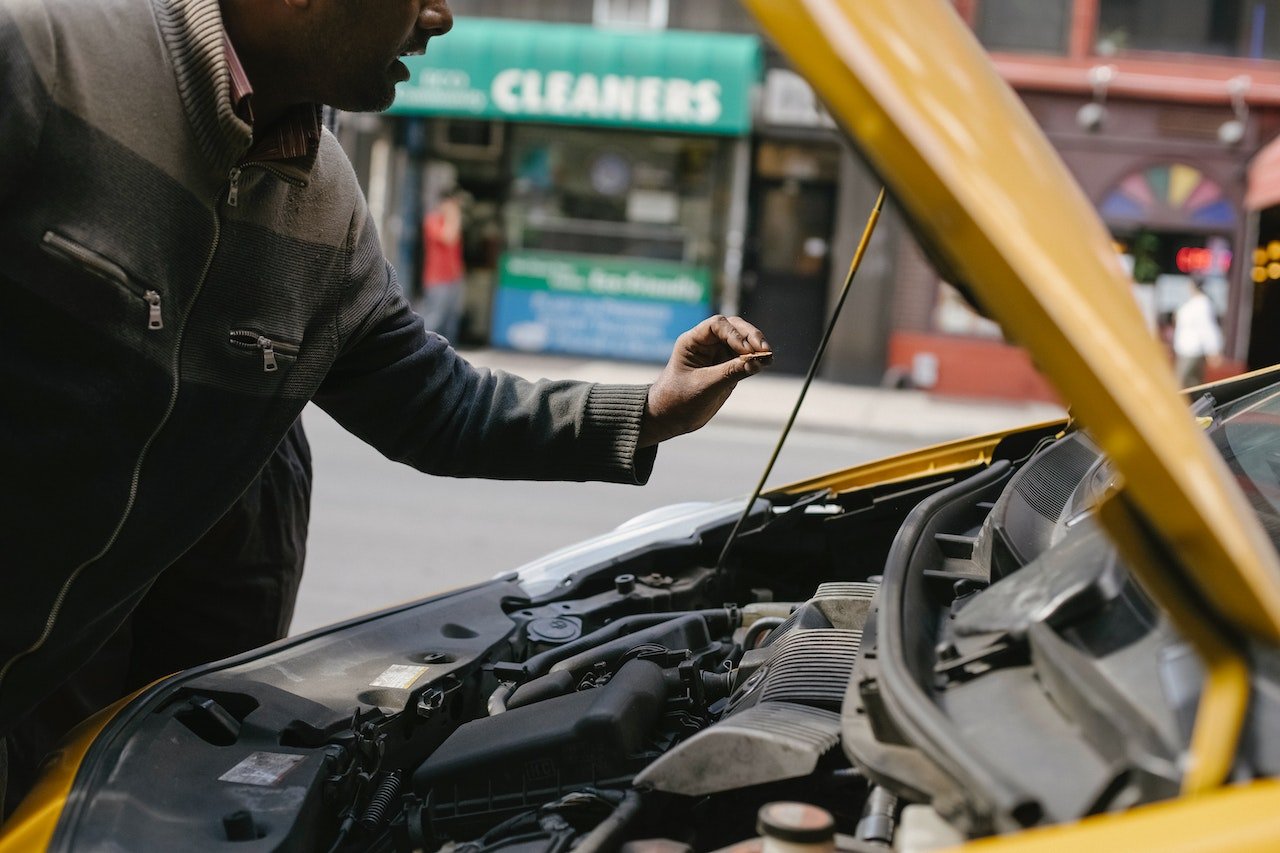If your car battery is hot or overheating, potential causes include overcharging, high temperatures, or a faulty cooling system. To fix this issue, ensure proper ventilation, check the charging system, and replace the battery if necessary.
When a car battery overheats, it can lead to permanent damage or even a potential fire hazard. Understanding the causes and solutions for a hot car battery is crucial for maintaining the health of your vehicle and preventing any safety risks.
By addressing the issue promptly, you can ensure your car’s battery operates efficiently and safely while extending its lifespan. Let’s explore the common reasons why car batteries overheat and how to troubleshoot these issues effectively.
1. Common Causes Of A Hot Or Overheating Car Battery
A hot or overheating car battery can be a cause for concern as it indicates an underlying issue that needs to be addressed. Understanding the common causes behind a hot car battery can help you identify and resolve the problem quickly. In this section, we will explore the main reasons why a car battery may become hot or overheated.
1.1 Battery Overcharging
Battery overcharging is one of the primary causes of a hot or overheating car battery. When the battery is overcharged, the chemical reaction inside the battery intensifies, generating excess heat. This can lead to the battery becoming hot to the touch and, in extreme cases, even cause it to swell or leak.
1.2 High Ambient Temperature
In hot weather conditions, the ambient temperature surrounding the car can rise significantly. When the external temperature increases, the car’s engine bay heats up as well. This excessive heat can transfer to the battery, causing it to become hot or overheated.
1.3 Faulty Voltage Regulator
A faulty voltage regulator can disrupt the charging process of the car battery, resulting in overcharging and overheating. The voltage regulator is responsible for maintaining a steady flow of electrical current to the battery. When it malfunctions, it can allow an excessive amount of current to flow, causing the battery to become hot.
1.4 Excessive Electrical Load
When your car’s electrical system is under heavy load, such as using multiple accessories simultaneously or having a faulty electrical component, it can put a strain on the battery. This increased demand for power can cause the battery to produce more heat as it struggles to meet the electrical needs, leading to overheating.
It is important to remember that a hot or overheating car battery not only indicates a problem with the battery itself but also potential issues with the charging system or electrical components of the car. Identifying and addressing these underlying causes is crucial to prevent further damage and ensure the longevity of your car battery.

Credit: www.avg.com
2. Signs And Symptoms Of A Hot Or Overheating Car Battery
If your car battery is hot or overheating, it is crucial to recognize the signs and symptoms to prevent potential damage or safety hazards. Identifying these warning signals early can help you take the necessary steps to address the issue promptly and effectively.
2.1 Swelling Or Distortion Of The Battery Case
One of the indicators of an overheating car battery is the swelling or distortion of the battery case. When exposed to extreme heat, the internal components of the battery can expand, causing the case to bulge or deform. This physical change is a clear indication of thermal stress and should be addressed immediately to prevent further damage.
2.2 Foul Smell Or Smoke
If you notice a foul smell emanating from your car battery or observed smoke, it is a red flag indicating overheating. These odors and visible emissions could signify the leakage of battery acid or the battery overheating, creating a potentially hazardous situation. Promptly addressing these signs is crucial for ensuring safety and preventing fire hazards.
2.3 Dashboard Warning Lights
Dashboard warning lights specifically related to the battery or temperature can be an early indication of overheating. If you notice alert symbols indicating an issue with the battery or temperature, it is important to address the problem to prevent further complications. Ignoring these warnings may lead to serious vehicle malfunctions.
2.4 Loss Of Power/performance
A noticeable loss of power or diminished performance in your vehicle’s electrical systems can be a consequence of an overheating battery. Diminished power output may indicate that the battery is struggling to function optimally due to overheating. Addressing this issue promptly is essential to ensure proper vehicle operation and battery longevity.
3. Potential Risks And Dangers Of A Hot Car Battery
The hot temperature of a car battery can pose potential risks and dangers, including the risk of explosion or corrosion. It is important to identify and address the root causes of overheating to ensure the safety and longevity of your car battery.
3.1 Fire Hazard
A hot car battery can pose a serious fire risk, potentially leading to car fires and damage.
3.2 Damage To Electrical Components
Excessive heat can cause damage to the electrical components of the car, affecting its overall performance.
3.3 Risk Of Acid Leaks
An overheating battery increases the risk of acid leaks which can be corrosive and damaging.
3.4 Shortened Battery Lifespan
The heat can significantly reduce the lifespan of the car battery, leading to frequent replacements and added costs.
4. Steps To Take When You Notice A Hot Or Overheating Car Battery
When you notice a hot or overheating car battery, it is crucial to take immediate action to prevent potential damage or safety hazards. Follow these essential steps to address the issue promptly and effectively.
4.1 Pull Over And Turn Off The Engine
Safely pull over to the side of the road and turn off the engine to prevent any further overheating.
4.2 Safely Inspect The Battery
Carefully examine the battery for any signs of leakage, damage, or corrosion that may be contributing to the overheating.
4.3 Allow The Battery To Cool Down
Provide ample time for the battery to cool down before attempting any further actions or inspections.
4.4 Check Battery Fluid Levels
Inspect the battery fluid levels and top them up if necessary, ensuring the battery is properly maintained.
4.5 Test The Charging System
Conduct a thorough test of the charging system to identify any underlying issues that may have caused the battery to overheat.
5. Possible Fixes For A Hot Or Overheating Car Battery
If your car battery is hot or overheating, it’s crucial to address the issue promptly to prevent further damage and potential safety hazards. Here are some possible fixes to resolve the problem.
5.1 Remove Excessive Electrical Load
To prevent your car battery from overheating, reduce the electrical load on the vehicle by minimizing the use of auxiliary devices such as air conditioning, heated seats, or excessive lighting.
5.2 Check And Replace Faulty Voltage Regulator
A faulty voltage regulator can lead to erratic charging of the battery, causing it to overheat. Ensure the voltage regulator is functioning correctly and replace it if necessary to maintain a stable charging system.
5.3 Ensure Proper Battery Fluid Levels
Regularly check and maintain the proper fluid levels in the battery. Inadequate electrolyte levels can lead to increased resistance and overheating, so ensure they are topped up according to the manufacturer’s recommendations.
5.4 Install A Battery Insulation Kit
An insulation kit can help regulate the temperature of the battery and reduce the risk of overheating. Consider installing a battery insulation kit to mitigate excessive heat buildup in the battery compartment.
5.5 Regularly Maintain And Service The Battery
Proper maintenance and servicing of the battery, including regular cleaning of terminals and ensuring secure connections, are essential to prevent overheating issues. Schedule routine inspections and servicing to keep the battery in optimal condition.

Credit: www.side.cr

Credit: www.jdpower.com
Conclusion
Addressing a hot or overheating car battery is crucial for vehicle safety. By understanding the potential causes and implementing the appropriate fixes, you can prevent damage to the battery and maintain optimal performance. Regular maintenance and monitoring are key to ensuring a trouble-free and long-lasting car battery.
Stay informed and take action to keep your battery in top condition.


